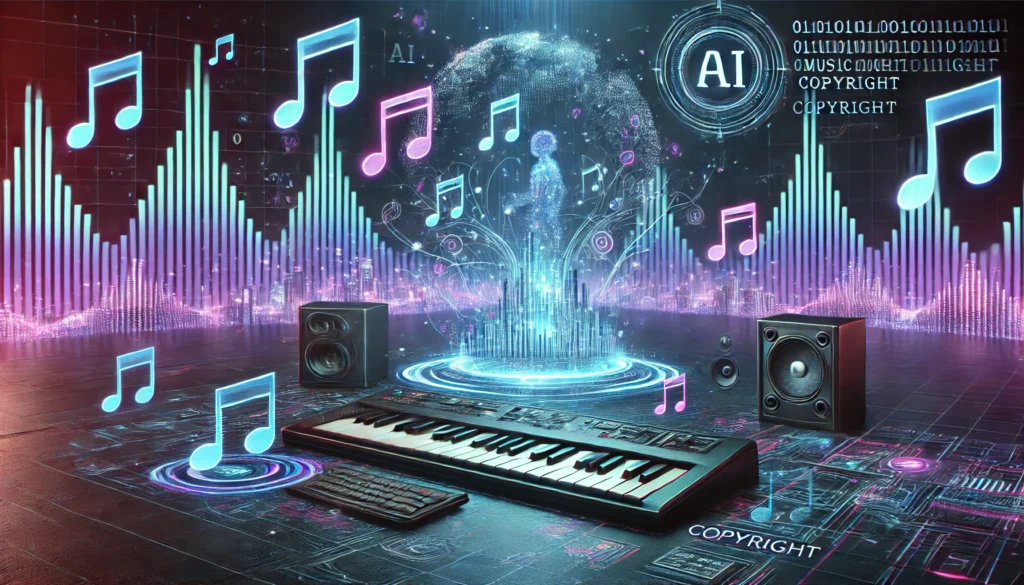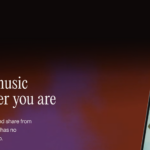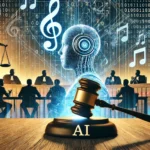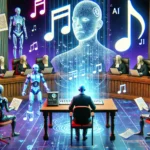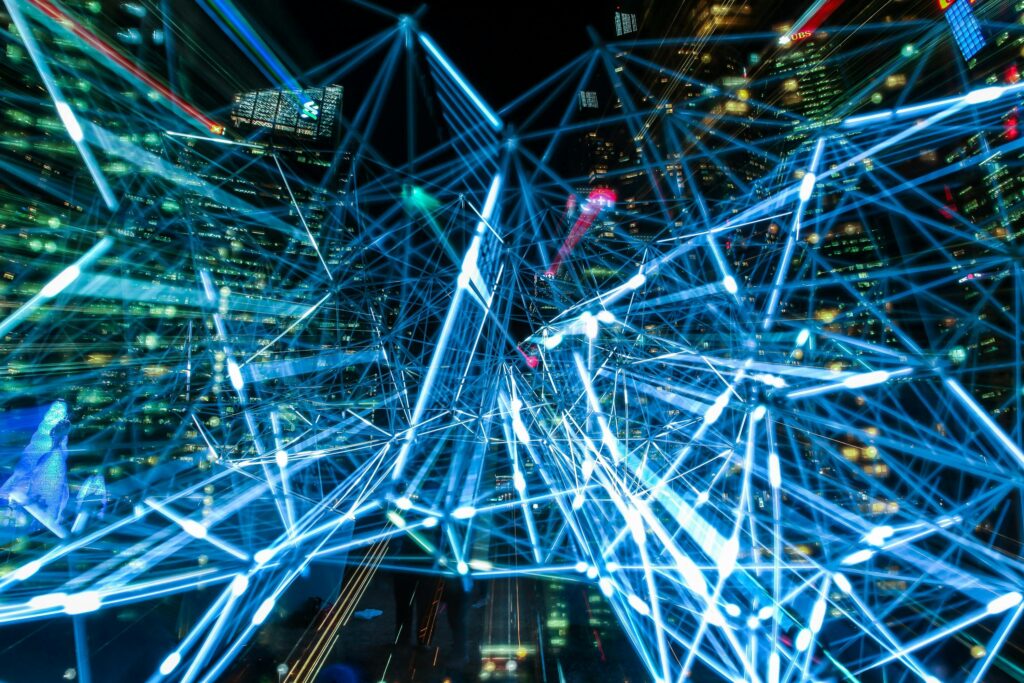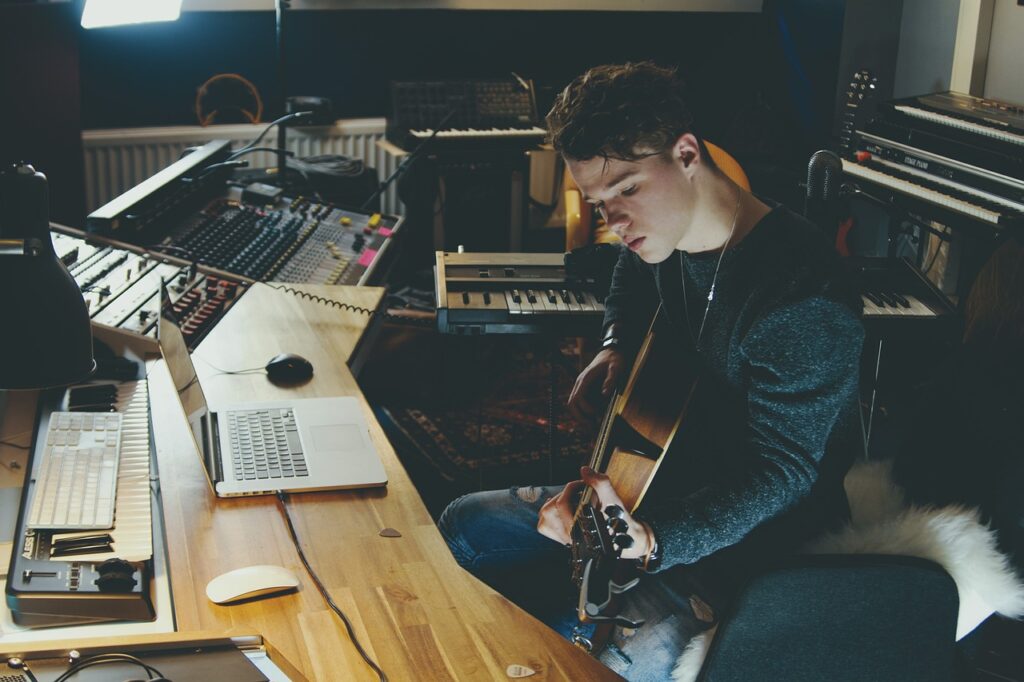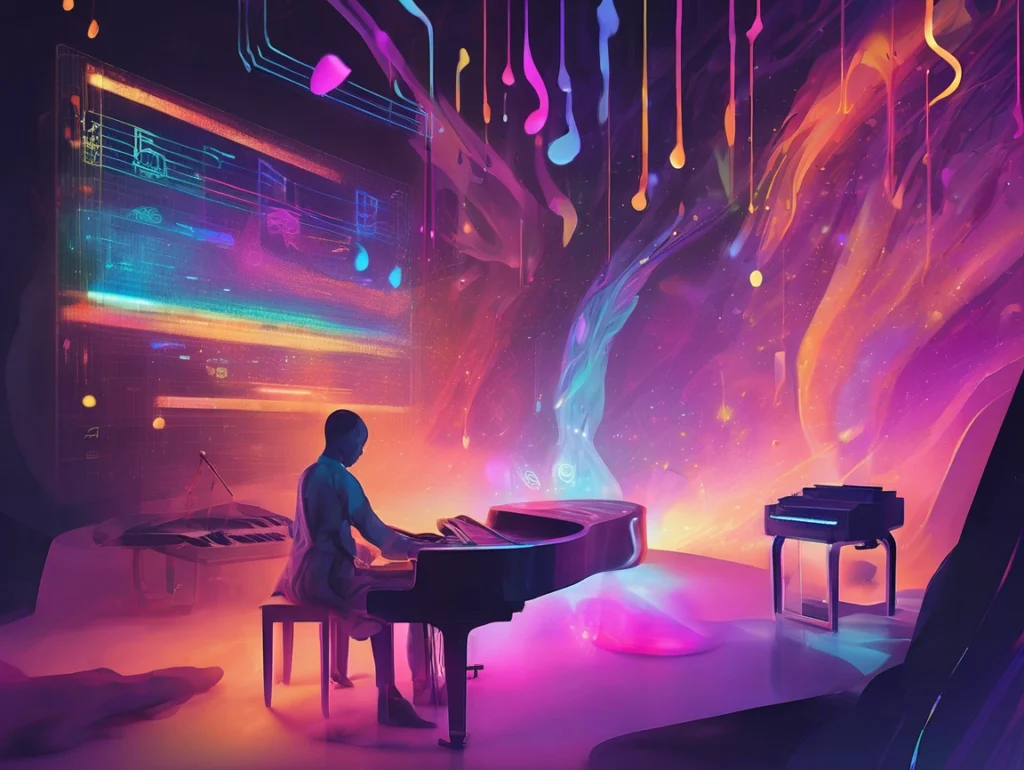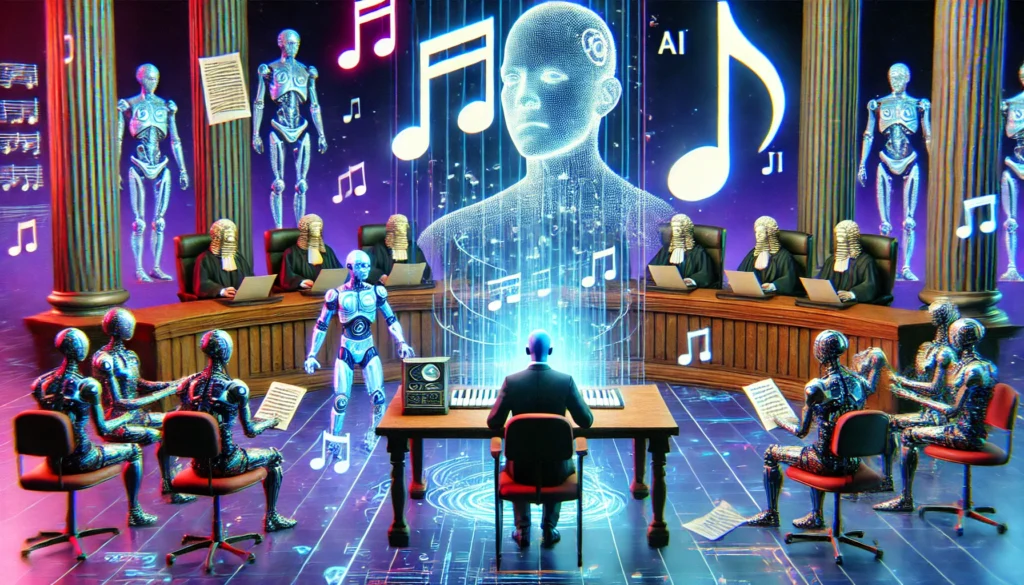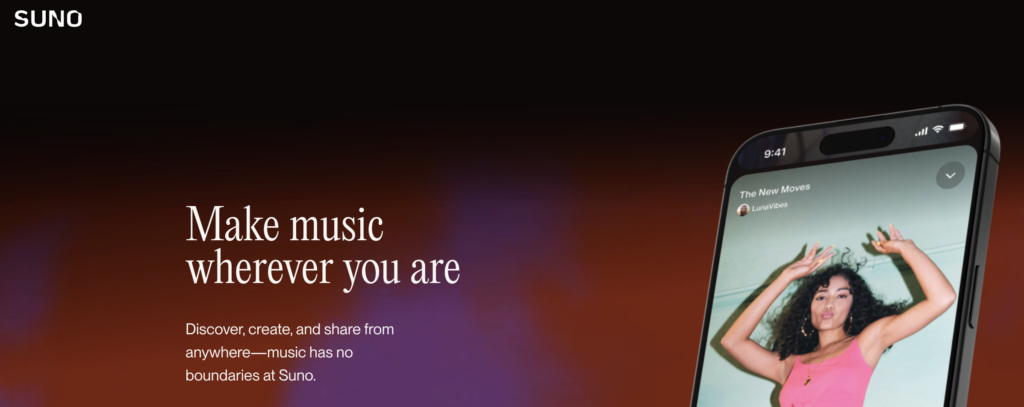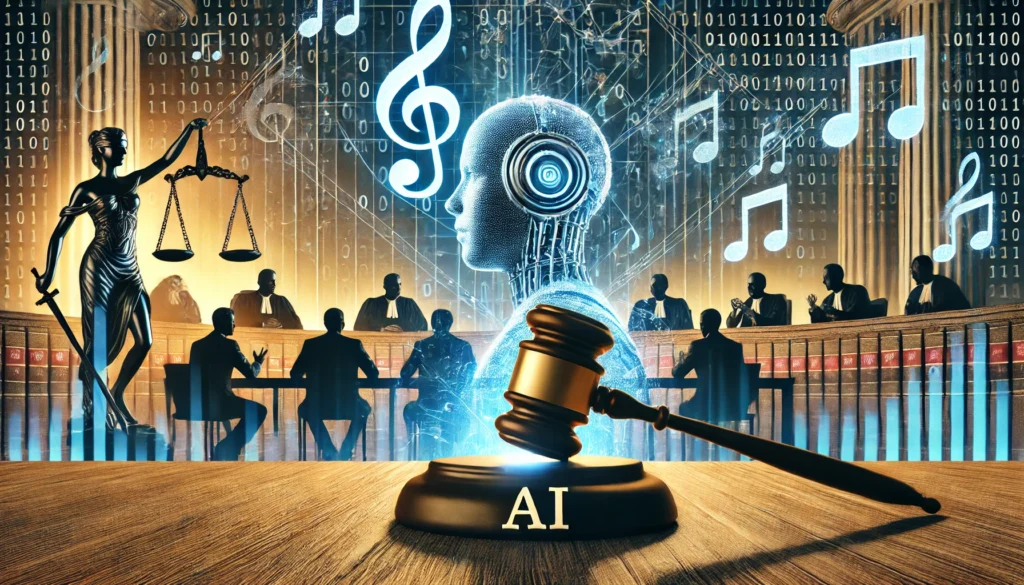Key Takeaways
- AI-generated music sits in a legal gray area where human authorship requirements complicate copyright claims
- Hybrid compositions with substantial human input have a stronger case for copyright protection than fully AI-generated works
- The distinction between AI-assisted versus AI-generated music is legally significant
- International perspectives vary, with the EU, UK, China, and Japan developing different regulatory approaches
- Artists and developers should use work-for-hire agreements to establish clear ownership of AI music projects
Introduction
The collision of music and artificial intelligence has birthed a fascinating dilemma. As AI-generated compositions populate our playlists and social feeds, we’re forced to confront an increasingly urgent question: Who actually owns this music? Can you copyright AI music? The answer requires untangling a complex web of legal precedents, technological capabilities, and creative ethics.
The U.S. Copyright Office maintains that for works to qualify for copyright protection, they must originate from human creators. This creates immediate tension in the AI music landscape. When algorithms compose melodies or generate entire tracks, the lines of authorship blur. Should rights belong to the programmer who designed the AI? The user who prompted it? Or might the AI itself deserve recognition?
The conversation grows more nuanced daily as artists, labels, and legal experts navigate this shifting terrain. Let’s explore the realities of AI-generated music in 2025 and what they mean for creators and consumers alike.
ALSO: How to License AI-Generated Music: A Complete Guide
The Basics of Copyright in Music
What is Copyright?
Copyright provides creators with exclusive control over their intellectual property. In music, this protection extends to compositions, lyrics, and recordings. It prevents others from using this work without permission or compensation.
Copyright vs. Licensing
Copyright establishes ownership and confers exclusive rights. These include reproduction, distribution, and public performance rights. Licensing, meanwhile, creates pathways for third parties to use copyrighted work under specific conditions. These arrangements typically involve payment and usage restrictions.
Who Typically Owns a Song?
Traditional music ownership follows relatively straightforward patterns. Composers and songwriters claim rights to melodies and lyrics. Producers may secure ownership stakes when they contribute substantially to a composition’s creation. Performers and labels generally control rights to specific recordings rather than the underlying composition.
This established framework faces significant challenges when AI enters the creative process. The conventional relationships between human creators become complicated by algorithmic contributions that lack legal personhood.
AI-Generated Music: Who Owns It?
The Human Authorship Requirement
Current copyright laws contain a fundamental barrier for AI music: the requirement for human creativity. Since AI lacks legal personhood, compositions generated entirely by algorithms face an uphill battle for copyright protection.
The law wasn’t designed with machine creativity in mind. It assumes human authors who can claim rights, enter contracts, and be held accountable. AI systems meet none of these criteria in traditional legal frameworks.
Can AI Be an Author?
Legal precedent suggests non-humans cannot hold copyright. The famous “Monkey Selfie” case established that animals lack standing for copyright claims. Courts have applied similar logic to AI systems, despite their sophisticated creative capabilities.
The philosophical question remains fascinating: if an AI creates something novel and valuable, should our legal systems evolve to recognize this? Current rulings suggest we’re not there yet.
The Role of the AI User
Some argue that users who direct AI through prompts should claim ownership. This perspective treats AI as a sophisticated tool rather than a creative entity. The strength of this argument varies with user involvement. A detailed prompt that shapes the creative output differs significantly from pressing a single button to generate random music.
Corporate Ownership
Major AI developers often claim rights to content created with their tools. Companies like OpenAI and Google include terms of service that limit user rights to AI-generated works. This creates a situation where neither the AI nor its user controls the creative output. Instead, corporate entities maintain ownership through contractual agreements.
Copyright Laws & AI Music: What the Courts Say
U.S. Copyright Office Stance
The U.S. Copyright Office has taken a clear position: fully AI-generated works cannot receive copyright protection. Their rulings consistently emphasize human creativity as a prerequisite for copyright eligibility. This position creates significant implications for artists relying heavily on AI tools.
The Office does recognize that human-modified AI outputs might qualify for protection. However, these modifications must demonstrate substantial creative input rather than minor adjustments to algorithm-generated content.
International Perspectives
Other nations have adopted varying approaches. The EU and UK are exploring dedicated AI copyright frameworks that balance innovation with creator protection. China recognizes limited rights for AI-generated works under specific conditions that acknowledge both human and machine contributions. Japan has introduced targeted policies addressing AI content ownership within their broader intellectual property system.
These international differences create complications for global music distribution. A work protected in one jurisdiction may lack similar status elsewhere.
Notable Court Cases
Legal battles have begun establishing precedent in this area. In Thaler v. U.S. Copyright Office, authorities denied copyright to AI-generated artwork despite human involvement in creating the generative system. Similarly, Naruto v. Slater confirmed that non-human entities cannot hold copyright, establishing principles now applied to AI creativity.
These cases reveal courts’ reluctance to expand copyright protection beyond human creators, regardless of technological advancement.
Copyrighting AI Music: What’s Possible in 2025?
Can You Copyright AI-Assisted Music?
The distinction between AI-assisted and fully AI-generated music proves crucial. When human composers substantially modify or enhance AI outputs, they may establish copyright claims. The key question becomes: How much human creative input is necessary?
Courts typically consider factors like artistic intent, creative decision-making, and the significance of human modifications. A musician who uses AI to generate initial ideas before extensive reworking stands on firmer legal ground than someone who uses AI output with minimal changes.
ALSO: Can AI Music Generators Replace Human Composers?
Hybrid Compositions
Many artists now create hybrid compositions that blend AI-generated elements with human creativity. These collaborations may qualify for copyright protection when the human contribution meets the threshold for originality.
Musicians often use AI tools to generate melodies, chord progressions, or rhythmic patterns. They then apply their expertise to refine these elements into cohesive works bearing their creative imprint. This workflow creates stronger copyright potential than wholesale adoption of AI outputs.
ALSO: Top 11 AI Music Generators to try
Work-for-Hire Agreements
Smart developers and artists now use contracts to establish clear ownership structures. Work-for-hire agreements can define relationships between AI tools, their users, and the resulting creative works. These contracts help navigate copyright uncertainty by creating explicit ownership arrangements regardless of how courts ultimately rule on AI authorship.
Ethical & Industry Implications
Impact on Human Musicians
AI-generated music presents both threat and opportunity for traditional artists. Some fear algorithmic competition will undermine human creators’ livelihoods. Others see AI as an innovative tool that expands creative possibilities rather than replacing human artistry.
The reality likely falls somewhere between these extremes. Musicians who adapt and incorporate AI into their workflow may gain advantages. Those who refuse to engage with these tools might face growing challenges as the technology improves and proliferates.
The most successful approach seems to be collaboration rather than competition. Human creativity directed through AI tools offers possibilities neither could achieve alone.
The Role of Record Labels
Major labels have begun investing heavily in AI music generation. They see potential for efficient content creation and expanded catalogs. However, these companies also face unprecedented challenges regarding music royalties and ownership disputes.
Traditional label contracts never contemplated AI-generated content. This creates uncertainty about artist relationships, royalty structures, and intellectual property rights. Forward-thinking labels are developing new contract models that address these complexities directly.
Music Royalties & AI
The royalty question becomes particularly thorny with AI music. Who deserves payment when algorithms generate compositions? Should these works enter the public domain by default? How should streaming platforms allocate revenue for AI-created content?
These questions lack definitive answers in 2025. Industry stakeholders continue debating approaches that balance innovation with fair compensation. The solutions they develop will shape music economics for decades to come.
Future of AI & Music Copyright Laws
Upcoming Legal Changes
Industry experts anticipate AI-specific copyright regulations will emerge within the next five years. Lawmakers worldwide recognize the need for frameworks that address machine creativity directly rather than forcing it into existing paradigms.
These emerging regulations will likely create limited rights for AI-assisted works while maintaining the distinction between human and machine creativity. The challenge lies in crafting rules flexible enough to accommodate rapidly evolving technology.
The Need for AI-Specific Regulations
Without clear legal guidelines, the music industry faces continued uncertainty. Questions about AI music licensing and ownership complicate business relationships and investment decisions. This regulatory vacuum creates risk for both creators and businesses.
Effective regulations must balance multiple concerns. They should protect human creators while encouraging technological innovation. They must provide clear ownership structures without stifling creative collaboration between humans and machines.
Best Practices for AI Users and Developers
While awaiting clearer regulations, industry participants should adopt pragmatic approaches. Artists should ensure substantial human input in AI-generated works to strengthen copyright claims. Developers should implement work-for-hire contracts that establish clear ownership expectations. All stakeholders should remain vigilant about AI music copyright law changes as they emerge.
Documentation becomes particularly important in this environment. Artists should maintain records of their creative process, demonstrating human involvement and decision-making that transforms AI output into original expression.
Conclusion
The world of AI-generated music continues evolving at breathtaking speed. Legal frameworks struggle to keep pace with these technological developments. While full copyright protection remains unavailable for purely AI-generated works, hybrid compositions with meaningful human input maintain protection under existing laws.
As we move forward, the relationship between human and machine creativity will continue transforming. Musicians, developers, and legal professionals must adapt to this shifting landscape. Those who understand the nuances of AI music copyright position themselves for success in this exciting but uncertain frontier.
Working with AI-generated music? Consult a copyright attorney familiar with emerging technologies. Their expertise can help navigate this complex terrain and protect your creative investment.

